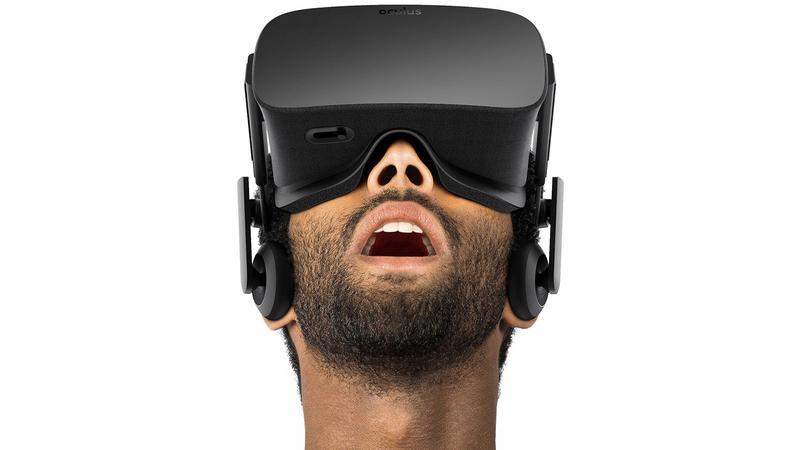
(Obrázek kredit: Oculus VR)
Oznámeno v polovině roku 2018,
Virtuallink
Rozhraní slíbilo připojení k jednomu kabelu pro nadcházející náhlavní soupravy VR.Ale rozhraní nikdy nevzlétlo a teď to vypadá, že to nikdy nebude. This week it turned out that Nvidia decided not to support Virtuallink on its
Geforce RTX 30-Series
Grafické karty
. What's more, the Virtuallink Consortium’s website is now offline.
Jediný kabel a silná podpora
Náhlavní soupravy VR první generace potřebovaly tři kabely: DisplayPort nebo HDMI pro video/zvuk, USB pro senzory a napájecí vstup. Using three cables is not exactly comfortable and in mid-2018 a consortium of high-tech companies introduced the Virtuallink interface, a single-cable USB Type-C connection for VR headsets.Požadavky na kabel byly spíše
přísný
: muselo to být USB-C 1.3 V souladu, použijte stíněné diferenciální páry pro své USB 3.0 párů (které obvykle používají neotřesené USB 2.0 párů) a být připojen v určité orientaci.
Konsorcium a rozhraní bylo podpořeno většinou společností, které se zajímaly o technologie AR a VR, včetně AMD, Facebooku, HTC, Microsoft, Nvidia a Valve. But it looks like the strong backing was not enough to bring the Virtuallink interface to fruition.
Vzácná podpora
Nvidia was the first company to support a Virtuallink connector on its first-generation GeForce RTX 20-series Grafické karty featuring the
Turingova architektura
. The company’s second-generation GeForce RTX 20-series Super reference boards abandoned the connector, and it failed to return to the Geforce RTX 30-Series ‘Ampere’ cards announced this week.
AMD never offered a Virtuallink output on its reference Radeon RX 5000-series Grafické karty. Furthermore, the latest VR head-mounted displays, such as HTC’s Vive Cosmos, Facebook’s Oculus Rift S, and Valve’s Index also do not use Virtuallink. Valve tried to build a Virtuallink adapter for its Index, but

zrušeno
Je to kvůli problémům s spolehlivostí v srpnu 2019.
In fact, the only device that can use Nvidia’s Virtuallink connector is the
Oculus Quest
(jeden z
Nejlepší náhlavní soupravy VR
) připojeno k počítači spuštěným
Oculus Link
Software pomocí pokročilého kabelu. Technically, this was not a Virtuallink connection, but merely a way to take advantage of the port.
Web dolů
Apparently, Nvidia is not the only one to lose interest in Virtuallink.Webové stránky konsorcia byly dole a
přesměrování
to the Virtuallink Wikipedia entry for months now.Pokud to není jasný důkaz, že je tato technologie opuštěna, nejsme si jisti, co je.
Virtuallink Dead
While the Virtuallink specification exists and can be implemented by interested parties, without support from giants like Nvidia as well as makers of popular VR headsets, the interface is dead for all intents and purposes.
What remains to be seen is whether a single-cable connection for AR and the Nejlepší náhlavní soupravy VR will be possible in the foreseeable future. There are interfaces like USB4 (in its ‘full’ implementation) and Thunderbolt 4 that support loads of bandwidth, a multitude of features, and have rather přísný implementation requirements. But could they pick up where Virtuallink left off?
Zdroj:
Cesta do VR
